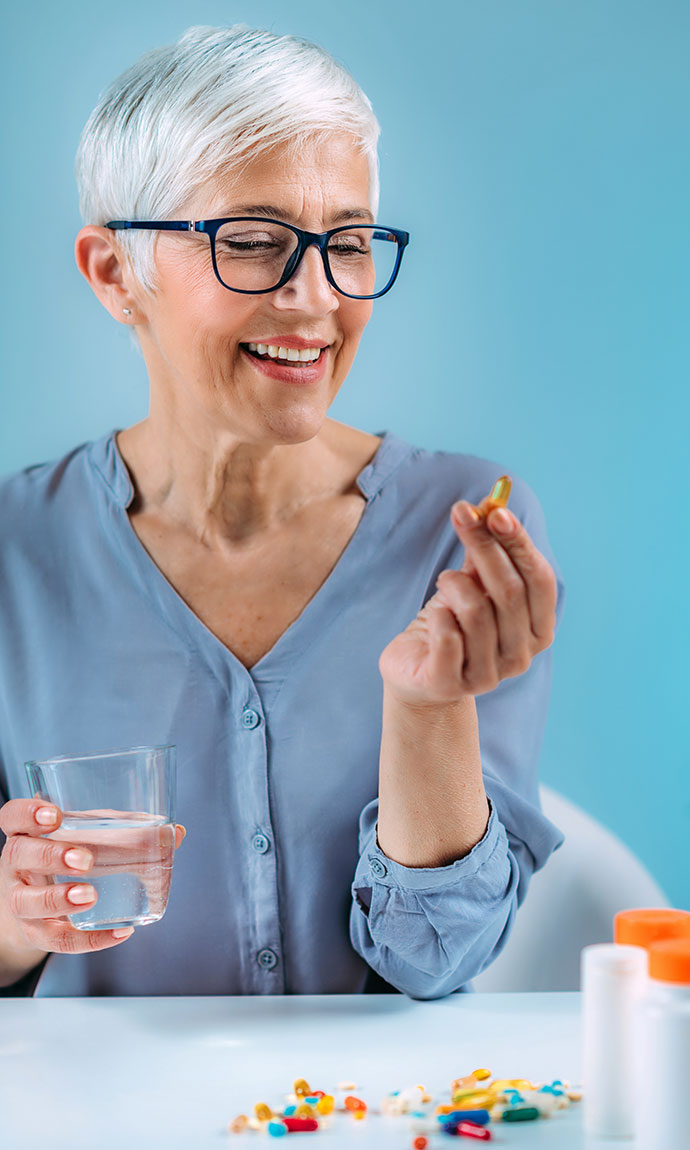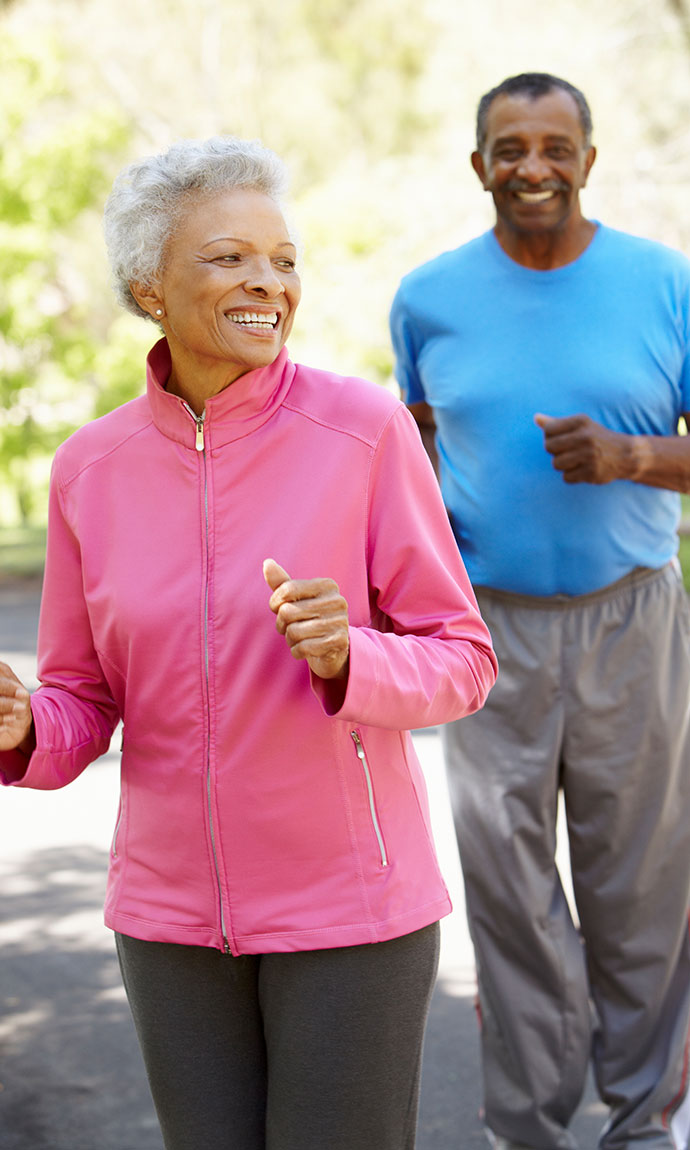
Nutrition for Seniors and Why It Matters
As we age, our nutritional needs change. Senior citizens have different dietary requirements than younger adults, and it’s important to make sure that your diet is meeting those needs. If you don’t get the adequate nutrition for seniors, you may be at risk for health problems such as malnutrition or obesity.
Digesting food and absorbing nutrients become more difficult as well. There are a few key nutrients that are especially important for seniors to focus on. It's important to get the daily recommended amounts to help maintain healthy body function and to fight diseases.

Is Dieting After 60 Important?
Yes, dieting after 60 is very important! As we age, our bodies change and become more susceptible to certain diseases and chronic conditions. Maintaining a healthy diet can help us stay strong, active, and prevent the development of these health problems. Some key components of a healthy diet for seniors include eating plenty of fruits and vegetables, getting adequate protein, staying hydrated, and avoiding processed foods, sugary drinks, and unhealthy fats.
Nutrition for Seniors
There are a few key things to keep in mind when it comes to getting healthy food for seniors. First, it's important to focus on eating a variety of foods and incorporating different types of nutrients into the diet. This can include protein, fiber, healthy fats, fruits and vegetables, whole grains, and plenty of water.
Second, it's important to be mindful of portion sizes. Eating too much at any time can cause us to put on excess weight, which is not only bad for our health but can also lead to more serious issues like diabetes and heart disease.
Third, it's important to choose foods that are easy to digest, such as cooked vegetables instead of raw ones. This will help reduce our risk of nausea and other digestive issues. Finally, it's a good idea to supplement our diet with vitamins and minerals, especially if we are not getting enough of them through our food.
Some of the key nutrients that seniors should focus on include protein, fiber, healthy fats, fruits and vegetables, whole grains, and plenty of water.
Protein
Protein is essential for seniors, as it helps maintain muscle mass and bone density. Good sources of protein include lean meats, poultry, fish, beans, tofu, nuts, and seeds.

Fiber
Fiber is important for keeping our digestive system healthy and can help reduce the risk of developing certain chronic diseases. Good sources of fiber include whole grains, fruits and vegetables, beans and legumes, nuts, and seeds. There are over-the-counter soluble fiber sources, but if you can, get your fiber naturally!
Fat
Not all fat is bad for you! Healthy fats, also called omega-3 fatty acids, are key for keeping our heart healthy and maintaining cognitive function as we age. Good sources of healthy fats include olive oil, flaxseed oil, fatty fish such as salmon or sardines, nuts, seeds, and avocados.
Fruits and vegetables
Fruits and vegetables are an important part of any healthy diet, as they are packed with nutrients like fiber and antioxidants that can help reduce the risk of certain diseases. Good sources of fruits and vegetables include berries, citrus fruits, leafy greens like spinach or kale, and cruciferous vegetables like broccoli or Brussels sprouts. It helps to think of building the rainbow when thinking about what fruits and vegetables to eat. Aim to make your plate as colorful as possible, and if you can, aim to have all the colors of the rainbow a day.
Grains
Whole grains are packed with nutrients like fiber and protein and can help reduce the risk of developing chronic diseases. When eating grains, opt for the “brown” sources instead of “white.” Good sources of whole grains include oats, quinoa, brown rice, and whole-wheat bread. If, however, you have trouble digesting or have any gastrointestinal issues, it may be best to stick to the “white” grains as these are easier to process.
Water
Water helps keep our bodies hydrated and flush out toxins. Seniors should aim to drink eight glasses of water per day. Try drinking warm or even hot water, instead of iced water, as this has been found to help aid in digestion, promote blood circulation, and may improve central nervous system function.
By following these guidelines, seniors can maintain a healthy diet that will help them stay strong and healthy as they age.

Healthy Food for Older Adults: How Much Should You Be Eating?
Calories are a crucial component of any diet, and this is especially true for seniors. As we age, our bodies require fewer calories than when we were younger. The average caloric needs for adults over the age of 60 range from 1,600 to 2,200 calories per day. However, this number can vary depending on factors like body size, activity level, and overall health. To determine how many calories you should be consuming each day, it is best to consult with a healthcare professional or dietitian. They can provide personalized recommendations based on your individual needs. With the right number of calories, seniors can maintain a healthy weight, stay active and energized, and reduce their risk of developing certain diseases or health conditions.
There are many different factors that can affect our diets as we age, from changes in body composition to medication and chronic health conditions. By following a healthy diet and exercising regularly, we can all stay as healthy as possible as we grow older. Whether you're after 60 or any other age, it's important to pay attention to your diet and make sure you're getting the nutrients you need to stay healthy and prevent disease.
Supplements for Seniors
It may surprise you, but the food we eat, no matter how healthy it may be, may not contain all the essential vitamins and nutrients our bodies need to function. When it comes to getting the proper nutrition for senior citizens, it's important to consider the role of supplements and vitamins. These can help us get the nutrients we need, even if our diet may be lacking in certain areas.
Vitamins and minerals
Vitamins and minerals are important for seniors as they help our bodies function properly. Some of the most important vitamins and minerals for seniors include vitamin D, calcium, vitamin B12, iron, and magnesium. These are often found in multivitamin supplements, which can help ensure that we get the nutrients we need to stay healthy as we age.
Calcium
Calcium is essential for seniors, as it helps keep our bones strong and reduces the risk of developing osteoporosis. While calcium is often associated with milk and the like, it’s not the only place we can get it. Good sources of calcium include dairy products, leafy greens, broccoli, and fortified orange juice.

Vitamin D
Seniors need vitamin D as it helps our bodies absorb calcium and can reduce the risk of developing chronic diseases like cancer and diabetes. Also called the Sunshine Vitamin, Vitamin D is best gotten from staying outdoors. Try to get at least 15 minutes of sunshine each day (before 10 am or after 3 pm). Other good sources of vitamin D include fatty fish, egg yolks, mushrooms, and fortified milk or orange juice.
Vitamin B12
Vitamin B12, one of the 12 B vitamins, is essential for seniors as it helps support the nervous system and can reduce the risk of developing anemia. Healthy food for seniors that are rich in vitamin B12 include clams, sardines, beef, salmon, and dairy products.
Iron
Seniors need iron in order to maintain healthy blood cells and reduce the risk of developing anemia. Remember to include meat products like beef or chicken, poultry, dark leafy greens like spinach, beans, nuts and seeds, and fish like salmon or tuna in your diet to get your recommended iron intake.
Magnesium
Magnesium is important for seniors, as it helps promote normal bone structure and reduces the risk of heart diseases. A good way to remember what kinds of food are rich in magnesium is to think of fiber. Legumes, whole grains, seeds and nuts (especially almonds), dark chocolate, and green leafy vegetables all have high magnesium content. You can also take magnesium supplements to get even more magnesium in your body.
Food Seniors Should Avoid
There are certain foods that seniors should avoid, as they can be detrimental to our health. These include processed meats, sugary drinks, refined carbohydrates, and fried foods.

Processed meats like bacon and sausage are high in saturated fat and sodium, which can increase the risk of developing heart disease. Sugary drinks like soda and fruit juice are high in sugar, which has been linked to an increased risk of developing diabetes. Refined carbohydrates like white bread can be high in calories and lack many important nutrients. Fried foods like french fries and potato chips are high in unhealthy fats and sodium, which increase the risk of developing heart disease or high blood pressure.
Don’t Forget to Move!
Along with eating healthy food for older adults, regular exercise is essential for seniors to help you stay energetic at 60. Regular exercise can help improve strength and balance, reduce the risk of developing certain chronic diseases like heart disease or diabetes, and improve overall mood and cognitive function. Some good forms of exercise for seniors include walking, light weightlifting, swimming, yoga, or even dancing.
Start with Better Lifestyle Choices
In addition to eating healthy food for senior citizens and getting regular exercise, there are other things seniors can do to stay healthy as you age. These include getting enough sleep, managing stress levels, staying social, quitting smoking, and visiting the doctor regularly for checkups or health screenings. By eating a healthy diet, exercising regularly, and taking care of ourselves in other ways, we can all stay as healthy as possible as we grow older.
Let Senior Assistance Club help you stay healthy even after retirement! Browse through our articles on nutrition for seniors and learn tips and tricks to staying active even after hitting 60.







